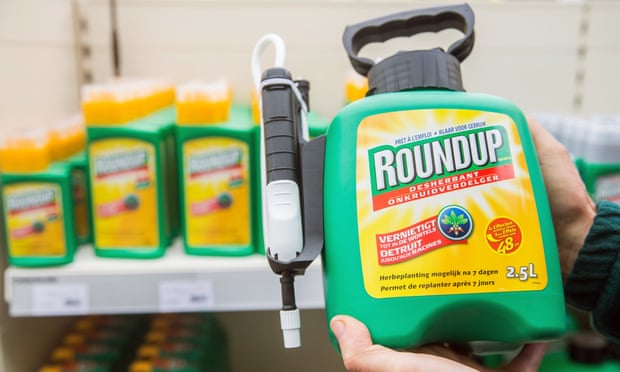Germany Bans Glyphosate in Weed Killers
Glyphosate, sold under the trade name Roundup, is already banned or restricted in a number of EU countries. Photograph: Stephanie Lecocq/EPA
September 15, 2019
On Wednesday, September 4th, Germany announced that by the end of 2023, they plan to eliminate the use of glyphosate in weed killers. The pesticide was found to harm beneficial insects and their surrounding ecosystems. Not only has the weed killer been wiping out some insect populations, it is also suspected that it causes cancer in humans. By the time this ban is enacted, Germany’s approval period will expire with the European Union (EU), which voted to extend the license of glyphosate by 5 years.
The EU is a political and economic union of 28 member states that are located primarily in Europe. The purpose of the EU is to form economic and policy community between the members. “What harms insects also harms people,” said Svenja Schulze, Germany’s environment minister. “A world without insects is not worth living.”
The first phase of this plan is banning the use of glyphosate in parks and gardens, then gradually restricting from richer areas such as orchard meadows. In the meantime, Germany will slow down the use of glyphosate until the ban is fully enacted.
In February, 1.75 million people in Bavaria, Germany voted to “save the bees,” which opposed the use of harsh chemicals. Germany hopes that banning glyphosate will cause an increase in the insect population and therefore food availability for other animals. Germany is not the first to ban the use of glyphosate, as Austria enacted the ban in July, followed by the Czech Republic, Netherlands, and Italy.
Although support for the ban is widespread, farmers and workers in the chemical industries continue to defend the use of glyphosate, as it kills weeds without harming the crops. Monsanto, an American company that developed Roundup Weed Killer was soon acquired by Bayer, a German multinational pharmaceutical and life science company. Bayer argues that the weed killer is important for ensuring sustainability of agriculture. “The ruling ignores decades of scientific judgment from independent regulatory agencies around the world that glyphosate is safe when used properly,” stated Liam Condon, a member of Bayer’s management board. As of now, Bayer and Monsanto are facing many lawsuits about glyphosate being an alleged factor to cancer.


